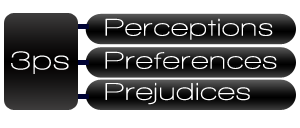Employers Checking Your Social Media? You Bet!
I wanted to share the results of a recent survey by Jobvite, a leading developer of software for job recruitment in social media. Jobvite’s research indicates a survey of 1,600 recruiters indicated a fact which we all have been concerned about.
The question posed to recruiters was:
Have you ever reconsidered a candidate based on their social profile?
Yes 42% No 58%
Yes – 42% of recruiters have indicated that they have reconsidered candidates based on their social profile!
Social media can be fun, informative, and enjoyable….depending on who is looking at it. It can be all of those because it is not the medium, but more how you use it. Social media involvement is voluntary, and thus the problems that happen as a result of using it are self-imposed ills.
I know some professionals who are wise enough to establish a social media “alias” that will allow them to enjoy social media use and give personal freedom while preserving their privacy.
However you elect to enjoy social media, you will want to remember that you’re ”broadcasting” your life, and you need to be prepared for individuals to interpret or misinterpret everything you say or do.
There has been much press regarding this topic. The way you handle your social media could possibly interfere with your ability to get, and sometimes keep a job in the digital age. With Facebook, Twitter, YouTube, MySpace, StumbleUpon, Tumblr, and many other social media outlets, even the most devoted sales professional could stand the risk of distraction.
Additionally, if you allow your personal business to be made public, it will come back to haunt you. Without the careful filtering of your participation in social media sites, you could be making your private life public.
The power of social media is amazing but utter the wrong thing and the ability of social media to go viral could change your life, or at least your employment status.
Using Social Media On the Job
![]() This is an interesting proposition. I was in a group classroom setting in a social media class when the professor asked if any of us knew our employers policy on social media and electronic media. Sadly, 3 out of 20 people raised their hands. You should have a copy of it if you are engaging in any social media at the workplace , and if you do any social media mentioning your employers while on your own time. Normally it can be found on your company’s intranet site, or requested from human resources. In most cases it describes the things that are important, and you will quickly be able to scan it and tell if it is a templated policy, or if it has been tailored for your employer’s needs.
This is an interesting proposition. I was in a group classroom setting in a social media class when the professor asked if any of us knew our employers policy on social media and electronic media. Sadly, 3 out of 20 people raised their hands. You should have a copy of it if you are engaging in any social media at the workplace , and if you do any social media mentioning your employers while on your own time. Normally it can be found on your company’s intranet site, or requested from human resources. In most cases it describes the things that are important, and you will quickly be able to scan it and tell if it is a templated policy, or if it has been tailored for your employer’s needs.
A couple things you do know:
- Avoid criticizing your employer in any social media. It is that simple. On your e-mails, if on the company email system, I would suggest avoiding any negative references to your boss, your company, or your company’s information.
- Organizations have an ability to track your usage of personal media sites/social media sites in terms of keystrokes and time spent. Make an assumption that they do it! Is it worth losing your job to respond during the workday?
- A preoccupation with social media on the job is widespread. An organization called Nucleus Research of Boston; Massachusetts indicates that 77% of American workers admit to using Facebook while on the job. Think about being the employer who is trying to explain difficult financial performance when it determined that of that 77%, 87% state that had nothing to do with their job duties.
When employees were dealing with predominately e-mail 10 years ago, it was not a big deal. After the explosion of social media it becomes evident that participation in social media can be very time-consuming.
Many sophisticated employers have blocked the sites for social media on the job. In most cases, you will be making entries with your own equipment including your cell phone or tablet. Be smart there as well.
Using Social Media at Home
Your use of social media in your private life shouldn’t be a big issue. The problems occur when the theater of social media shows you in compromising situations, and is seen by a manager or coworker.
A few examples are:
- A intimate relationship between a manager and one of his direct reports, an act which is proscribed in almost every organization, was discovered when it was posted on one of their Facebook sites.
- A rant about a manager and the employer was posted on Twitter and seen by the manager. The words, though limited to 140 were “damning” and ended with a ‘reassignment’ of the employee to less favorable duties.
- Entries and tweets that are full of tough language and sexual connotations will haunt you as has happened to many who thought their comments were shielded.
As sated to start this piece, prospective employers and recruiters resort to perusing a Facebook site to determine the ‘personality’ of an applicant. It might not feel right, yet it happens. What they are really getting is a listing of the personal activities of the candidate. When they see you with the bottle of vodka in one hand and something we hope is a cigarette in the other, they may make a decision that is…well let’s just say not in your favor.
One Last Point
Black professionals increasingly realize the need for discretion and forethought in this important area. Why?…. Because there is a general ignorance and curiosity regarding how you live your life because of the difference in cultures. Show them only what you want them to know, or nothing at all. Wisely protect yourself, your family, and your career.
You are constantly being evaluated as a sales professional; that is something that you cannot change. No one needs to be afoul of the rules that govern the workplace or business as a whole. Avoid transmitting anything regarding your company on social media no matter how safe and secure you think it is. Additionally, avoid using your personal computer or hardware to “broadcast” anything on social media pertaining to your company, an employee of your company, or your work situation.
Be smart and aware and always be the professional.
Your comments are welcome. You can reach me at Michael.Parker@BlackSalesJournal.com.
 December 21, 2015
|
Posted by Admin9!
December 21, 2015
|
Posted by Admin9!
 Categories:
Categories:  Tags:
Tags: 


Your Comments